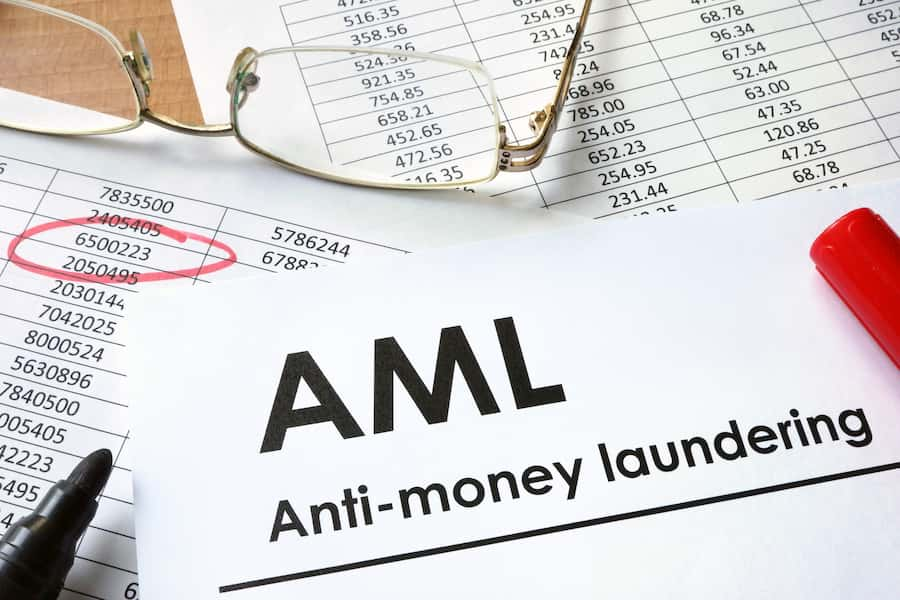Strategic outlook into Kenya’s Anti-Money Laundering and Counter-Terrorism Financing (AML/CFT) Framework.

Recent global money laundering cases, such as Steve Madden Limited, HSBC Holdings Limited and Danske Bank, illustrate the grave consequences of inadequate AML/CFT controls. With entities such as HSBC Holdings Limited facing a record-breaking USD 1.9 billion fine for failing to prevent money laundering linked to drug cartels. These examples highlight the urgent need for businesses to rigorously assess Anti-Money Laundering (AML) and Counter-Terrorism Financing (CFT) risks, adopt strategic compliance frameworks and avoid the severe financial and reputational risks associated with non-compliance.
The regulatory framework surrounding AML and CFT in Kenya and across East Africa, has been evolving at an accelerated pace. Financial reforms, driven by the Financial Action Task Force (FATF) and the Eastern and Southern Africa Anti-Money Laundering Group (ESAAMLG), aim to address gaps in enforcement and adaption to the evolving global compliance landscape.
Kenya continues to lead in combating financial crimes, driven by the robust regulatory framework which includes the Anti-Money Laundering and Combating of Terrorism Financing Laws (Amendment) Act, No. 10 of 2023. Recent amendments have expanded the scope of AML compliance, requiring designated non-financial businesses and professions such as lawyers, real estate agents and accountants to adhere to AML/CFT guidelines. Kenya’s Capital Markets Authority has mandated enhanced due diligence for companies raising capital through the Nairobi Securities Exchange, ensuring that publicly listed firms maintain rigorous AML protocols.
In addition, companies operating in Kenya are required to disclose information regarding their beneficial ownership and control. The Registrar of Companies, in a directive dated 17th October 2024, indicated that all companies and limited liability partnerships (LLP(s)) would be required to prepare and maintain a Register of Beneficial owners as at November 30, 2024. Failure to comply shall attract a penalty of Ksh. 500,000/= and a further offence each day the failure continues to attract a further fine not exceeding Ksh. 50,000/=. Furthermore, the Registrar of Companies has the power to strike off any non-complaint companies or LLPs that fail to meet these requirements. The regulations aim to play a crucial role in supporting Kenya in combating money laundering and terrorism financing.
In light of the above, navigating the AML and CFT landscape will require a proactive approach for both businesses and investors looking to invest in Kenya. Given the stringent regulations and increasing scrutiny from regulatory bodies, businesses will not only need to comply with local laws but also adopt to global best practices in money laundering and terrorism financing prevention. This would be imperative in safeguarding reputation, enhancing business resilience and driving sustainable growth in East Africa.
Strategic considerations for businesses:
- Risk management and compliance culture: Building a strong compliance culture is crucial for businesses. This includes embedding AML and CFT policies at every level of the organization, ensuring that employees understand their roles in identifying and reporting suspicious activities. Management should also promote a zero-tolerance approach to money laundering and terrorism financing, underlining the company’s commitment to ethical practices.
- Enhanced due diligence: Conducting due diligence on clients, suppliers and potential acquisitions is essential for risk mitigation. Implementation of Know Your Customer (KYC) and Customer Due Diligence (CDD) measures should be part of the business broader risk management strategies. This is particularly important for companies involved in high-risk sectors, such as real estate.
- Leveraging technology: Opportunity for businesses to harness advanced technologies like artificial intelligence (AI) and machine learning to enhance AML/CFT compliance. Technology could assist in streamlining data analysis, allowing companies to identify unusual patterns and transactions more efficiently. Digital tools could help organizations maintain comprehensive records, simplifying audits and regulatory reporting.
Private Equity Firms (PE firms): Safeguarding investments in an AML-focused environment
PE firms seeking investment opportunities in East Africa must consider AML/CFT compliance as a cornerstone of due diligence. Investing in companies with weak AML policies could expose PE firms to reputational risks and legal challenges. The following are the strategic measures that PE firms can undertake:
- Pre-investment assessments: Conducting detailed AML/CFT assessments would be crucial before investing. This would include evaluating the company’s AML protocols, reviewing its internal policies, training programs and past compliance records.
- Implementing AML/CFT clauses in contracts: Including AML/CFT compliance clauses in investment contracts would ensure that portfolio companies adhere to legal standards. The clauses would mandate regular audits, compliance certifications and immediate action plans if compliance gaps are detected.
- Monitoring portfolio companies: PE firms must stay actively involved post-investment, providing compliance oversight and offering guidance on AML best practices. By conducting regular audits, PE firms can protect their investments and ensure adherence to both local and international regulations. Additionally, PE firms and multinational corporations could foster collaboration by engaging in industry-specific forums and supporting the development of cross-border AML/CFT initiatives.
Conclusion
The evolving AML/CFT framework presents both challenges and opportunities for businesses and PE firms. Adopting a proactive, technology-driven approach to compliance could provide a competitive edge and protect investments in the region. By fostering a culture of compliance, conducting rigorous due diligence and engaging in regional collaboration, companies can contribute to a transparent, resilient and thriving East African economy.
We continue to offer comprehensive support to businesses and PE firms by providing tailored compliance solutions that align with AML and CFT regulations. Through expert advisory services, Bellmac Consulting LLP assists clients in establishing robust AML frameworks, conducting due diligence and implementing effective risk management systems. Our team ensures that clients meet both local and international compliance standards, minimizing regulatory risks and enhancing operational transparency.
